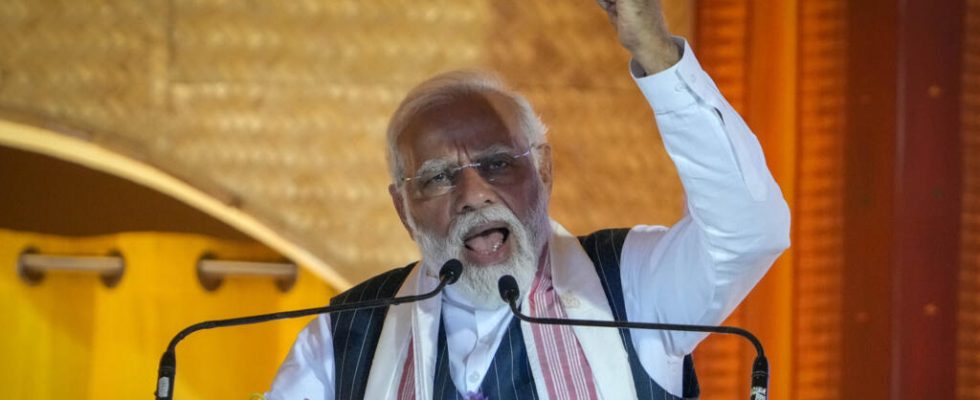In India, it is a reform presented as ” historical by the Minister of the Interior. Parliament is preparing to abolish many laws inherited from the British Penal Code and therefore from colonization. Entire sections of the Indian judicial system could be turned upside down.
3 mins
From our correspondent in Bangalore,
This is theIndian Penal Codewhich defines crimes and sentences, of theIndian Evidence Act and Code of Criminal Procedure who supervise the judicial investigations. These three codes were adopted in the 19th century when India was part of the British Empire, although they may have since been amended.
The stated objective is to purge Indian laws of any reference to the former colonist. This is part of the ” decolonization of minds wanted by Prime Minister Narendra Modi in all areas. In the capital New Delhi, statues or institutions built by the English are replaced.
But this is not just symbolic, as some of these laws are considered backward. It was by removing an article from the British Penal Code that India ended the criminalization of homosexuality in 2018. Above all, controversial sedition laws allow people to be thrown in prison for years without a trial.
Towards a modernization of the Indian judicial system?
There are government proposals that can achieve consensus. Citizens will now be able to file a complaint at any police station. The searches and certain interrogations will be filmed. General labor will be introduced as an alternative form of punishment.
But for a week, the opposition and criminal experts have been expressing their concern. Everyone agrees on the need to break with some of the British laws which are frequently perverted, but the remedy still has to be no worse than the disease.
funny how they don’t call it sedition anymore but make it worse in the new law
you will be punished for “subversive activities” it seems. pic.twitter.com/jxap5x4TcY
— meghnad 🔗 (@Memeghnad) August 11, 2023
However, the sedition laws of the Indian Penal Code are to be replaced by a new law which punishes “ acts endangering the sovereignty, unity and integrity of India “. This is an even vaguer definition than the previous one. The police will also be able to seize personal data from telephones and personal computers more easily. This opens the door to even greater abuse.
Read alsoIndia: Supreme Court suspends colonial law prosecuting acts of sedition
The law… and the spirit of the law
Everything will therefore depend on the interpretation. There is the law and the spirit of the law. But for nearly ten years, the Narendra Modi’s BJP uses and abuses laws which he now claims to suppress in order to target students, journalists, activists… Rahul Gandhi, leader of the opposition, has just been saved by the Supreme Court from two years in prison for a sentence handed down five years ago, a lawsuit brought under a British defamation law.
Finally, there is the fear that the target is not only the colonial legacy, but also that of the Congress party and Gandhi’s India. This Tuesday, August 15, Bibek Debroy, an economist close to the government, said that to really break with colonialism, India must replace the Constitution promulgated at its independence in 1947.
